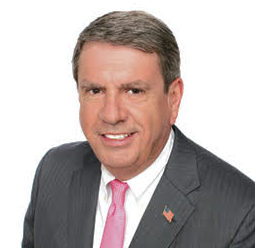MarketInsight | A “peculiar” theory

In 1854, a cholera epidemic threatened the residents of the west-end London suburb of Soho. Soho was not the swanky shopping and dining district it is today. It was a slum. Hundreds would die of the disease. Medical experts believed that the disease was transmitted by “miasma,” or bad air. Public health officials urged the public to avoid sleeping in cold air, to be temperate in eating and drinking, to avoid raw vegetables and fruit, and the consumption of cold water when overheated. None of these things cause the transmittal of cholera.
One man set out to find the real cause of the dreaded disease. His name was John Snow and he was the son of a common laborer. At an early age, Snow had demonstrated an aptitude for mathematics. As a result, he found himself apprenticed to a doctor at the age of 14. Eleven years later he became a surgeon. Snow rejected the common belief that diseases such as cholera were transmitted by pollution or diseased air. He believed the disease was transmitted by water tainted by sewage.
Snow began to laboriously map every cholera death in London that year, all 616 of them. Snow’s hand drawn map demonstrated that all the deaths had occurred within a short distance of a single well, the Broad Street well in Soho. Snow theorized, correctly, that it was water from the well that was causing the epidemic. The chief physician for the city of London called the new theory “peculiar.” Nonetheless, the Broad Street well was closed, and the cholera outbreak ended. Later it was shown that sewage was leaking into the well.
In one long summer of research, Snow had discovered the cause of cholera, saved hundreds of innocent lives, and invented the science of epidemiology. Epidemiology is the study of the distribution and determinants of disease. Snow’s methodology is still used by organizations like the Centers for Disease Control and the World Health Organization to this day. The medical community was reluctant to accept Snow’s findings. He would be vindicated, but only in death.
Human beings are often resistant to change. Innovators are often stonewalled by the establishment. People laughed at the light bulb, the airplane, and the personal computer. The British Parliament declared of Edison’s light bulb that it might be “good enough for our Transatlantic friends… but unworthy of the attention of practical or scientific men.” As investors, we need to embrace change in order to profit from changes in the way we live. Change is going to happen whether we like it or not. So, stay open to innovative ideas, even the peculiar ones.
Scott A. Grant is President of Standfast Asset Management in Ponte Vedra Beach. He welcomes your comments or questions at scottg@standfastic.com.




Comments are Closed